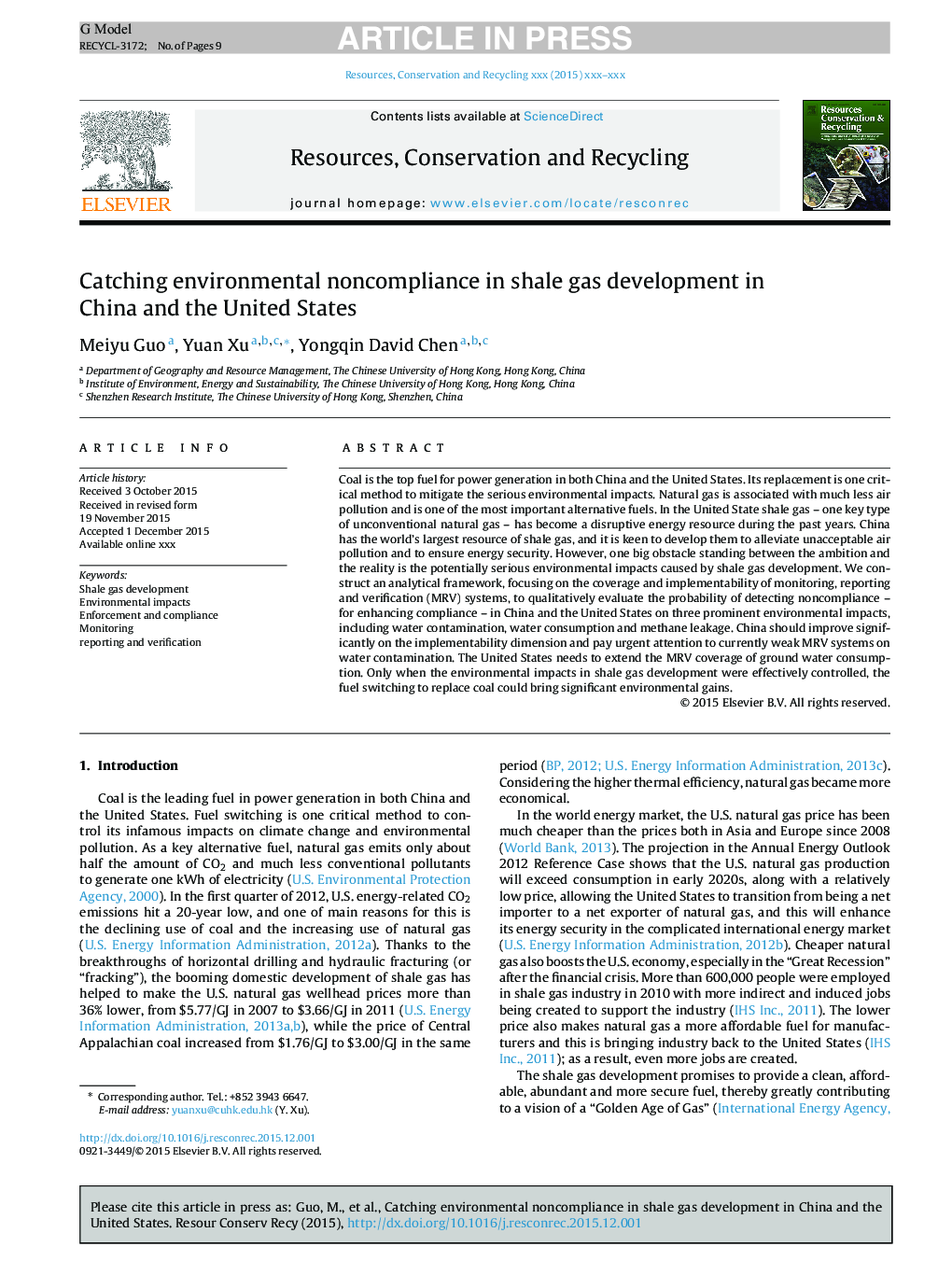| Article ID | Journal | Published Year | Pages | File Type |
|---|---|---|---|---|
| 5118853 | Resources, Conservation and Recycling | 2017 | 9 Pages |
Abstract
Coal is the top fuel for power generation in both China and the United States. Its replacement is one critical method to mitigate the serious environmental impacts. Natural gas is associated with much less air pollution and is one of the most important alternative fuels. In the United State shale gas - one key type of unconventional natural gas - has become a disruptive energy resource during the past years. China has the world's largest resource of shale gas, and it is keen to develop them to alleviate unacceptable air pollution and to ensure energy security. However, one big obstacle standing between the ambition and the reality is the potentially serious environmental impacts caused by shale gas development. We construct an analytical framework, focusing on the coverage and implementability of monitoring, reporting and verification (MRV) systems, to qualitatively evaluate the probability of detecting noncompliance - for enhancing compliance - in China and the United States on three prominent environmental impacts, including water contamination, water consumption and methane leakage. China should improve significantly on the implementability dimension and pay urgent attention to currently weak MRV systems on water contamination. The United States needs to extend the MRV coverage of ground water consumption. Only when the environmental impacts in shale gas development were effectively controlled, the fuel switching to replace coal could bring significant environmental gains.
Related Topics
Physical Sciences and Engineering
Energy
Renewable Energy, Sustainability and the Environment
Authors
Meiyu Guo, Yuan Xu, Yongqin David Chen,
